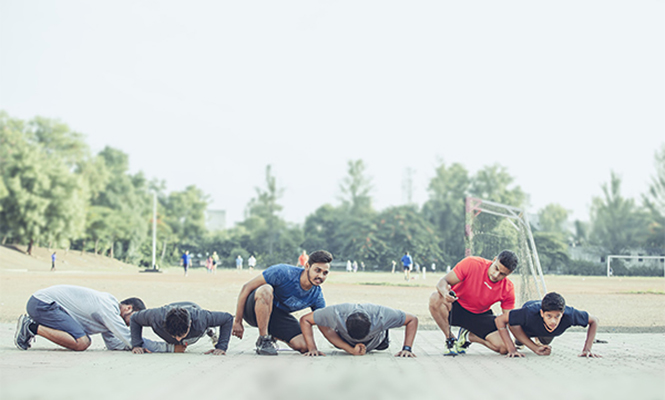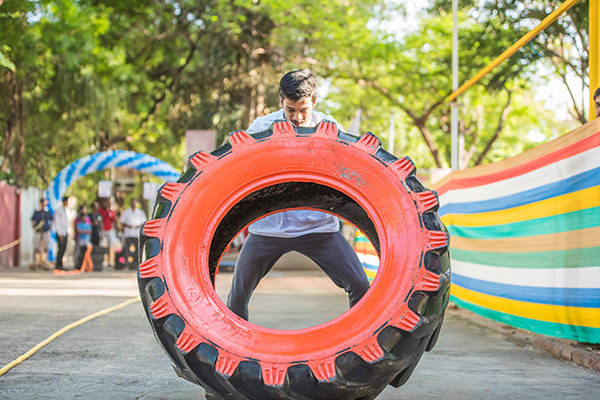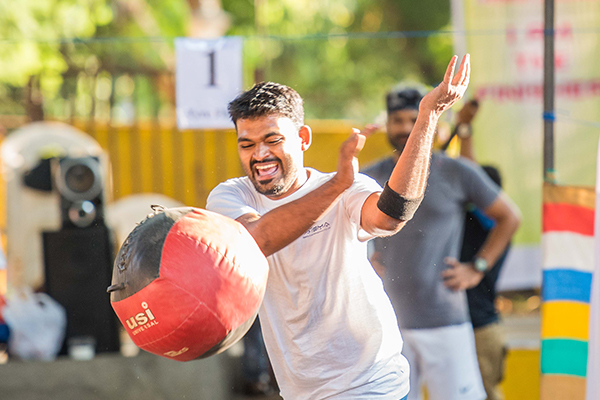Functional Training and the role of strength and conditioning coach

Photo by : RAPbyritika (www.rapbyritika.com)
Simple, objective, realistic and scientific are some of the important qualities of a good exercise program, be it for an executive planning to run a 5k dream run or a professional athlete. Functional training is an important part of any sports training. Here’s why:
‘’Strength & Conditioning’’, ‘’Functional Training’’ or ‘’Sports Specific training’’ are probably some of the less sought after terms in the recreational fitness industry and may make the clients turn their backs. However, the schools of thought based around such terms do little different than objective application of scientific facts. In simple language, all of the aforementioned terms mean ‘’Physical preparation for a specific function (from sports to daily work for a non-athlete) by training the required movements and energy systems, instead of muscles and angles’’.

A Sports Science professional who provides physical training with an aforementioned view is known as a Strength & Conditioning Coach. A Strength & Conditioning Coach provides functional training with three primary goals in mind
- Reduce the occurrences of injuries related to movement dysfunction and overuse,
- Reduce the magnitude of injuries and time taken to recover and
- Improve physical performance.
The process to achieve these goals starts with the scientific assessment of an athlete or a person through
1) Musculo-skeletal Screening,
2) Functional Movement Screening and
3) Fitness Assessment, followed by designing of the training program based on current limitations of the client and metabolic (energy based) and biomechanical (movement based) needs of a particular function (sport in the case of an athlete).
It can be easily deciphered that this type of training intervention is grossly different than largely aesthetic goals oriented training approach of the recreational fitness industry. Specifically, anyone who is participating in a competitive sport at any level with an aim to improve would require scientific approach to physical preparation in terms of assessment, training, nutrition, and recovery. While recreational fitness industry, in its current scenario provide physical training with an ineffective approach (as explained above), it fails to provide any form of intervention in nutritional and recovery based needs.

The number of athletes who are participating in various competitive sports across India is growing exponentially. This number includes district / state cricket players, football / hockey players across various clubs, athletes of individual sports such as tennis, badminton, golf, Track and Field and college and high school athletes. Additionally, there is a huge growth in recreational athletes who strive to participate in corporate / weekend competitions such as dream runs, inter – company tournaments, etc. Also, there is a need to provide a scientific training to spread general health and wellness. Very few organizations / associations have their own set up through which they can provide scientific Strength & Conditioning services to their athletes and non-athletes. Largely, these people have been using the services of the recreational fitness industry, which can provide only limited results due to the differentiating approach as explained above.
Moreover, if one looks at the primary aims of functional training (as mentioned above), and compares it with the number of injuries and performance limiting incidences that are experienced by non athletic fitness enthusiasts, one would realize the need of introducing scientific Strength & Conditioning practices to the non-athletic population as well.
Vishwas Walavalkar own The Grind, a fitness based service provider for athletes.
By: Vishwas Walavalkar





Vishwas – Superb article. S & C are essential for all sports nowadays
Skills and Strength are both really important! 🙂 #KheloMore #TrainMore